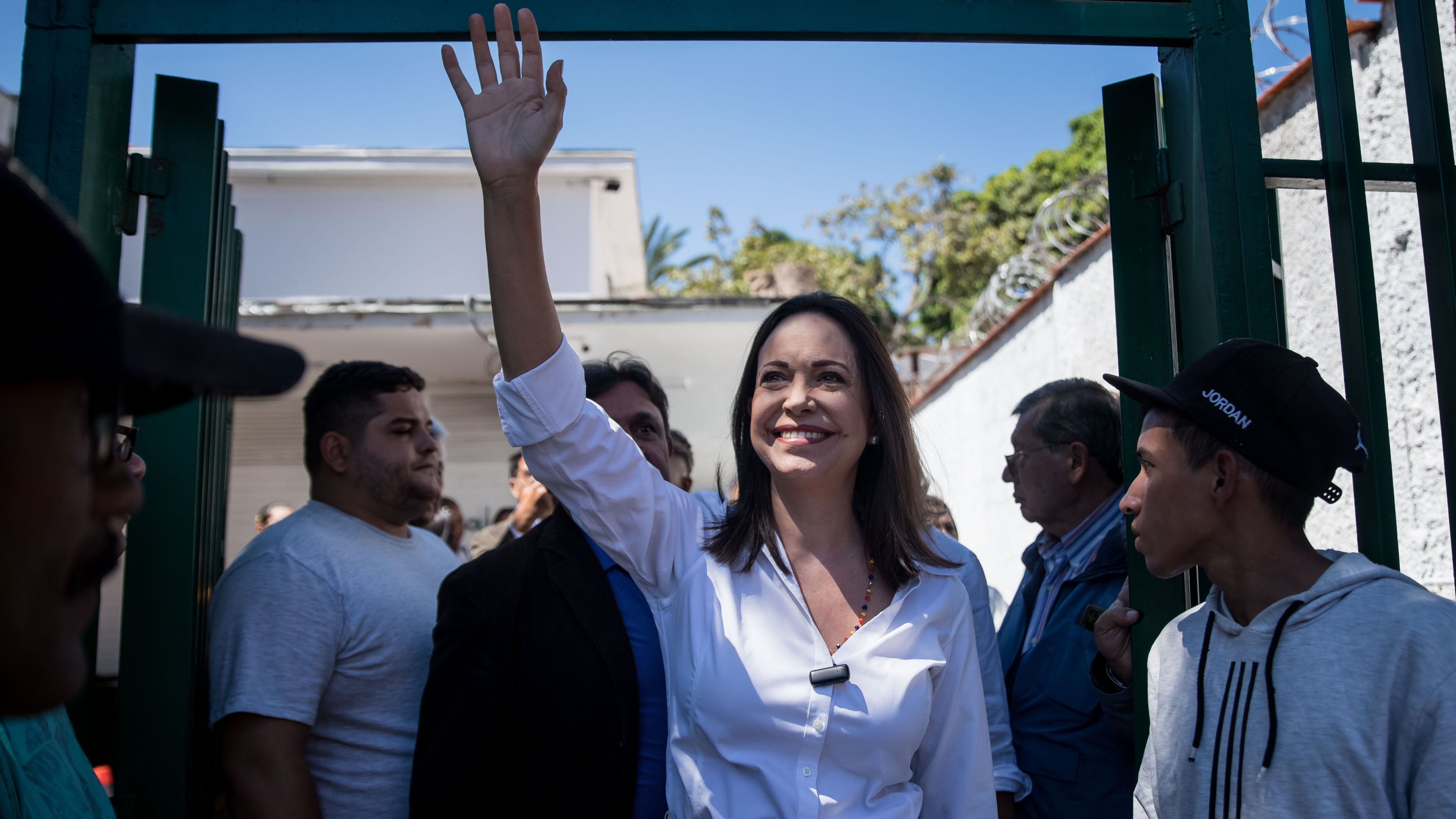

Two realities will collide during this election year in Venezuela. The Chavista administration, which controls the country’s governmental and judicial systems, is heading into the July 28 presidential elections with the certainty that it will once again win and continue in power, as has been the case since 1999. The ruling party has made sure that President Nicolás Maduro will not meet any obstacle when it comes to reelection, with which he would exceed the number of years that the legendary Hugo Chávez spent in power. His opposition understands the country’s free and fair elections as a myth, but even so, it’s not giving up easily. In the coming months, opposition forces will roll out a campaign that has the support of the international community and will demand that the Chavistas respect the electoral process, even if it seems as though this election is a forgone conclusion.
Maduro, who has a very low approval rating, has been campaigning for months. The president led a referendum to claim part of neighboring Guyana for Venezuela, an attempt to promote a nationalist mood that might improve his image as leader. The plan did not succeed. Venezuelans hardly showed up to vote on the issue, which was clearly not keeping them up at night. They did, however, head to the polls to support opposition candidate María Corina Machado in October of last year. Machado prevailed over a field of anti-Chavistas in a primary whose turnout exceeded all expectations, including those of Chavista leaders. There were queues at polling places and Machado won handily, with more than 90% of votes. It was evident that Venezuela was witnessing the birth of a viable alternative to Chavismo.
But the government was not about to allow her to challenge Maduro under any circumstances, even if Machado was leading in polls between the two candidates. The challenger has been banned from elections for 15 years based on allegations that she supports U.S. sanctions on Venezuela, and her backing of Juan Guaidó as interim president after Maduro began a second term following elections considered fraudulent by the United States and the European Union. In January, Machado said that she was not aware of that she had been disqualified, but the Supreme Court responded by clarifying that she had been barred from holding any public office.
The opposition leader is convinced that if she is not allowed to participate, the election will be invalid. “I received a mandate, a mandate to lead this country to clean and free elections. I am committed to go all the way with this,” she said after learning the date of the election, which was announced on the anniversary of Chávez’s death and will coincide with the anniversary of his birth, in case there was any doubt as to whose followers were running the show. “Just as they got out of negotiations,” she continued, “now they want to get out of the electoral process, because they are afraid. My commitment is to achieve clean elections, and with the strength of the people, we will make that possible.”
Institutional and economic crisis
At least publicly, Machado still puts his trust in the democratic path that the international community has long supported. The United States, Brussels, France and Colombia have tried to convince the Chavista administration that the best way to solve the serious institutional and economic crisis in which the country finds itself is to reach an overarching nationwide agreement that includes Chavismo and the opposition. The first step of this plan was to hold competitive elections in which opposition parties stood a real chance. Maduro seemed to have agreed to this strategy when he signed the Barbados agreements in October 2023, in which he committed to holding elections in the second half of 2024, in addition to allowing opposition candidates to participate, such as Machado or Henrique Capriles, who once came close to defeating Chávez in his day.
It seemed that the dialogue was working. United States President Joe Biden went even further, temporarily lifting U.S. sanctions on oil and gold. That allowed the Venezuelan government to participate in the free market, which had been previously prohibited. In turn, Caracas released five political prisoners. Venezuelan politics had seen more change in 24 hours than during the previous year and a half. Two months later, the United States released Alex Saab, Maduro’s alleged ally who had been arrested and imprisoned. But in the end, all these moves now seem to have been for naught.
Venezuela’s government has not and will not allow Machado to face off against Maduro under any circumstances. Chavista higher-ups have proven inflexible on the matter. In fact, they’ve gone so far as to arrest a series of opposition leaders, activists and even ordinary citizens. What are they charged with? An alleged attempt to assassinate Maduro in hopes of a coup d’état. The White House has announced that its sanctions will return, given that Caracas has reneged on its commitment to democracy, which at this point hinges on holding fair and competitive elections.
Sign up for our weekly newsletter to get more English-language news coverage from EL PAÍS USA Edition